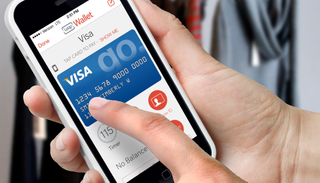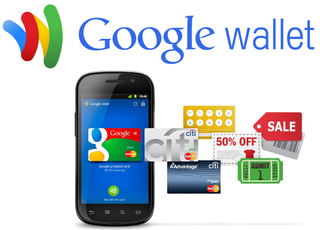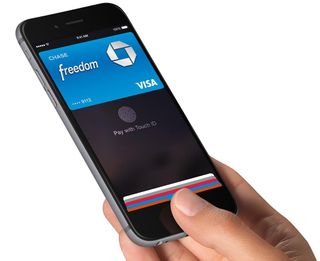Samsung, Google Will Duke It Out To Become Biggest Apple Pay Competitor

Samsung and Google could soon find themselves on a collision course, as both companies will soon try to go into mobile payments in a big way and compete with Apple Pay.
Samsung recently acquired LoopPay, a startup that uses magnetic field technology that emulates a card's swipe and is currently compatible with 90 percent of U.S. stores. Google, on the other hand, has had its Google Wallet since 2011. However, through a combination of carriers blocking it, Google not reporting those carriers to the FCC or FTC, and Google's failure to adequately promote the service well enough to consumers, the company hasn't seen much success with it.
Google and Samsung want to compete with Apple Pay, but both have some major disadvantages. Apple Pay has already gained a lot of momentum in the market, much bigger than Google Wallet ever had, and although Samsung's new LoopPay technology is currently compatible with more stores than Apple Pay, that may not work as well in the future.
The U.S. government already passed a law that encourages merchants to move to chip and PIN technology. Those who don't do it by October of this year could be held liable for credit card thefts in cases where the theft could have been prevented by a chip and PIN.
In the past year, we've seen a number of large U.S. retailers hacked, which is why all the major merchants will upgrade their systems before that deadline to decrease the likelihood of credit card thefts and to protect themselves from future lawsuits.
It's not clear yet how Samsung will transition to supporting chip and PIN through LoopPay in the near future, or whether it will simply develop a parallel NFC-based payment method that would work alongside LoopPay. Therefore, LoopPay could continue to work with all the merchants that haven't upgraded, while the "new" system would be enabled for merchants that support chip and PIN.
LoopPay could give Samsung the ability to support more merchants than Apple right out of the gate, while simultaneously giving itself a smooth transition to a more Apple Pay-like EMV (Europay, MasterCard and Visa) system.
Stay on the Cutting Edge
Join the experts who read Tom's Hardware for the inside track on enthusiast PC tech news — and have for over 25 years. We'll send breaking news and in-depth reviews of CPUs, GPUs, AI, maker hardware and more straight to your inbox.
If Samsung goes this way, then it may avoid quickly becoming obsolete in the mobile payments market. If it doesn't, and LoopPay remains its main method of doing mobile payments, then it might see itself squeezed out of the market as more merchants upgrade to more secure chip and PIN point-of-sale machines.

Although Samsung is the biggest Android handset manufacturer, Google still has the biggest potential to become a major competitor to Apple Pay through Google Wallet. The main obstacles that remain in its way right now are some deals with U.S. carriers. Google is reportedly in talks with carriers to pay for the "privilege" of using Google Wallet on their networks.
Google is also considering buying Softcard (Verizon, AT&T and T-mobile's former Isis Mobile Wallet), which could give it another boost in the market, at least through the bank and merchant partnerships the carriers have already created for Softcard.
Finally, Google will need to get all Android OEMs to install Google Wallet by default. This will not be an easy task, and it's one of the main reasons why Apple can push its new services so quickly in the market. Most iOS users can start using the new Apple Pay service with just an update.
Even if Samsung refuses to pre-install Google Wallet on its Android devices, users could still install the Google Wallet app from the Play Store. Another big advantage Google has over Samsung is that it uses a cloud-based technology called Host Card Emulation, which means Google Wallet can work on any device that has NFC.
Samsung's LoopPay, on the other hand, needs a hardware component that doesn't exist in any Samsung device right now. Even though LoopPay currently supports most merchants, it won't help Samsung gain too much momentum in the mobile payments market if too few people own devices with this technology.

Neither Samsung nor Google has stated yet whether their new or relaunched services will support the same kind of tokenization that Apple Pay supports to increase the privacy of their users' purchases. Instead of directly getting the credit card number and being liable for securing it, merchants would get randomly generated tokens through which the customers pay for their purchases. This is a feature of the EMV standard, so both Google and Samsung could support it, if they wish.
Follow us @tomshardware, on Facebook and on Google+.
-
Cash091 I have been using NFC to pay for things for a while now. Google Wallet and Softcard(when it was horrendously named ISIS) at tap-to-pay locations. It works really well for vending machines and laundry-mats.Reply -
Ninjawithagun Yeah, wonderful convenience until it is hacked and you lose all your money. No thanks!!Reply -
beverleydentin2 My Aunty Charlotte just got a nearly new white Audi only from working part-time online...Reply
look at this web-site >>>>>>>> www.jobsfish.com -
cwolf78 "Most iOS users can start using the new Apple Pay service with just an update."Reply
Last I checked, "most iOS users" don't have NFC on their devices. -
GreaseMonkey_62 Mobile pay wasn't that enticing to consumers a year or so ago, but now that Apple is doing it, it's the greatest thing ever. Now that Apple is doing it, everyone must do it.Reply
Most Popular






